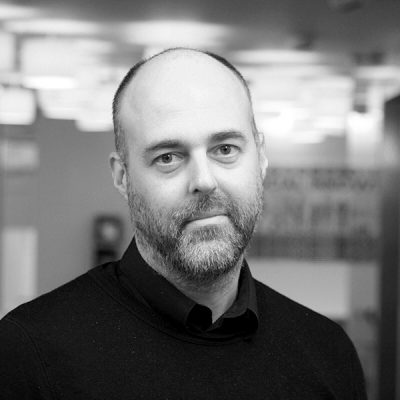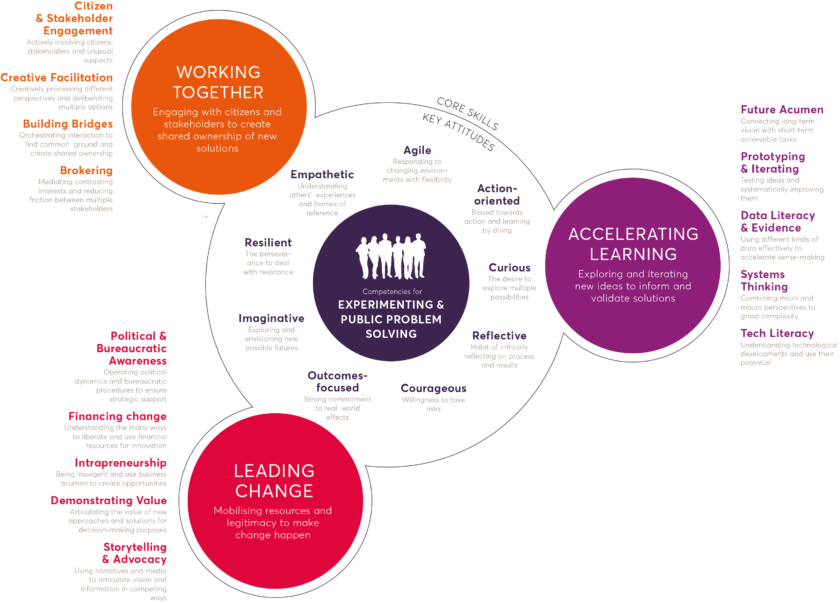Leading innovation practitioners from around the world have come together to develop a new competency framework which defines the key skills, attitudes and behaviours that public sector innovators combine in order to solve public problems.
We believe that problem solving is at the heart of how governments operate, and this is core to the development of the framework. It has been framed around experimental problem solving in order to emphasise how core attitudes and characteristics, in combination with key skills and competencies, enable behaviours that increase the likelihood of successful problem solving activities and better improve capacity.
The framework goes beyond creative thinking techniques and brainstorming – which are useful for generating ideas – and highlights as well the competencies that are needed to systematically create, authorise, test and improve on ideas.
Three core categories
The framework describes three categories that seem crucial to successful experimental problem solving:
- Accelerating learning: Exploring and experimenting to identify knowledge gaps, create new understanding and inform decision-making in new ways
- Working together: Engaging with citizens and multiple stakeholders to ensure co-creation and collaborative ownership of new solutions
- Leading change: Creating space for innovation and driving change processes to mobilise people, inspire action and ensure strategic outcomes
Content principles for the framework
The broader innovation skillset: The attitudes and skills outlined in the framework are the broader elements that, in combination, drive successful application of experimental problem solving activities.
Creating and maintaining the mandate for innovation: The effort required to create the space and legitimacy for innovation in government is often underestimated, so the framework also covers skills for creating an enabling environment to make innovation happen and ensure impact.
Team-focus: Teams are central to successful problem solving and so we start with the team, rather than the individual, as the unit of action. The challenge (and opportunity) is to combine these skills and attitudes in ways that make the team greater than its individual members.
We've built on this initial framework to create a guide to getting the most out of it, including exercises to run as a team and solo activities to better understand your own strengths.


